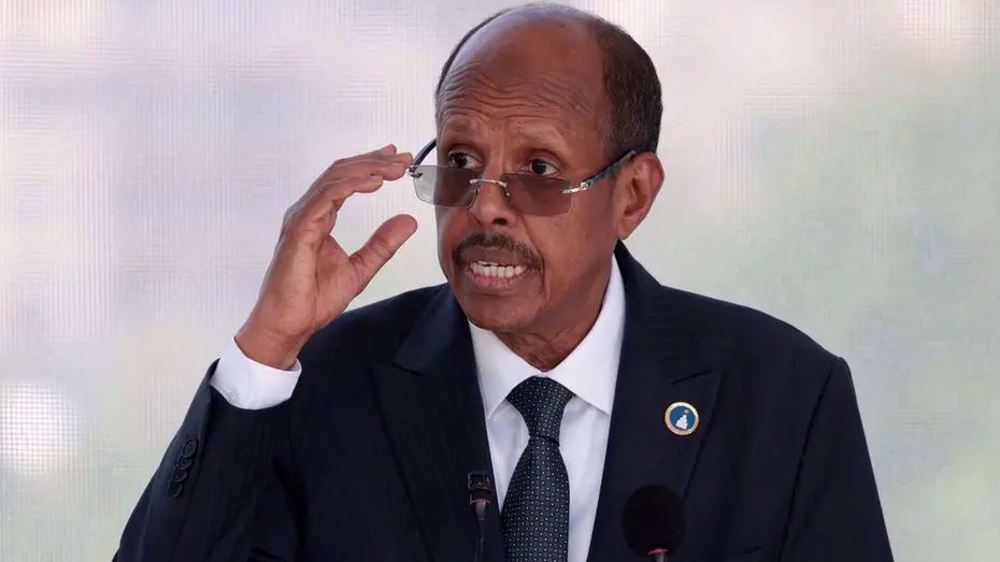Zambia to drop treason charges against opposition leader
Zambia plans to drop treason charges against the country's main opposition leader and free him from prison on Monday under a deal brokered by the Commonwealth secretary-general, government and legal sources told Reuters.
The United Party for National Development (UPND) leader Hakainde Hichilema and five others were arrested in April and charged with treason after Hichilema's convoy failed to make way for President Edgar Lungu's motorcade.
Hichilema's trial had been due to begin on Monday in the capital Lusaka but two sources said the prosecution would apply to the court to discontinue the case.
The case has stoked political tensions in Zambia, seen as one of Africa's more stable and functional democracies, following a bruising election last year.
Commonwealth Secretary-General Patricia Scotland visited Zambia last week and told reporters she had met Lungu and Hichilema separately and that the two leaders had agreed to a process of dialogue facilitated by her office.
"That process of dialogue, which the Commonwealth Secretary-General Baroness Patricia Scotland is leading with the help of Catholic bishops, starts with the release of the opposition leader from prison," a government source told Reuters on Sunday, referring to local religious leaders.
"The state will discontinue the treason case in the public interest as both the opposition leader and the head of state are committed to burying their past and starting dialogue envisaged to help address some of the issues the opposition raised after the 2016 elections so that the 2021 elections are better held."
A spokesman for the UPND said the party was unaware of any plan to release Hichilema.
"We don't have anything on that. We are not privy to the agreement that was entered into between the two leaders and therefore can only wait for tomorrow," UPND spokesman Charles Kakoma said.
The UPND later said that Hichilema and his co-accused were transferred from Mukobeko Maximum Prison - about 130 km (81 miles) north of the capital - to Lusaka Central Prison.
"They were airlifted this morning and have arrived safely in Lusaka," the party said.
The government source said Lungu is committed to all aspects of the dialogue agreed between the president and the opposition leader, which include promoting peace, stability and public good.
"An overt act serious enough to warrant prosecution exists but the public interest seems to be the overriding consideration, so a nolle prosequi will be entered," a public prosecutor told Reuters, using the legal term for the discharge of a case.

The southern African country has always been relatively stable but relations between the government and the opposition have been fraught since August when Lungu's Patriotic Front (PF) beat the UPND in a presidential election marred by violence and which the opposition says was rigged.
It was the second time that Lungu beat Hichilema, an economist and businessman popularly known by his initials "HH", in a presidential election by a razor-thin margin.
Lee Habasonda, a political science lecturer at the University of Zambia, said Hichilema's release would ease political tension, improve Zambia's image with investors and end mounting international pressure on Lungu's government.
"In the face of Zambia seeking international assistance, it is time to make such a move because the state does not lose anything by releasing the opposition leader and dealing with him in other ways," Habasonda told Reuters.
In June, church leaders including those from the influential Catholic Church, called for Hichilema's release.
Last month Lungu invoked emergency powers to deal with "acts of sabotage" by his political opponents, after fire gutted the country's biggest market.
Under emergency laws police can prohibit public meetings, detain suspects longer than usual, search without a warrant, close roads, impose curfews and restrict certain people's movements.
The UPND has said Lungu's use of emergency powers is unnecessary and a ploy to make it easier for police to arrest its supporters.
On Thursday police freed another opposition leader, United Progressive Party leader Saviour Chishimba, after holding him in detention for a week on accusations of defaming Lungu, an offence that carries a maximum five-year prison term.
Chishimba hit the headlines in July after criticizing Lungu's decision to impose emergency powers and suggesting the president should go to hospital for mental tests.
When he invoked the emergency powers, Lungu said the measure would safeguard investments in the country, which is Africa's second-biggest copper producer and is currently in talks with the International Monetary Fund over a financial aid package. The president said the IMF was free to terminate the negotiations if it considered his actions were wrong.
(Source: Reuters)
Palestinians granted only 66 building permits in West Bank over 11 years: Report
Somaliland ready to give US access to its minerals, military bases: Minister
VIDEO | Iran's game changing retaliation boxes- part 1
VIDEO | Iran's game changing retaliation boxes- Part 2
VIDEO | Palestinian widow raises three kids in Gaza as her husband killed by Israel
Palestinian teen killed as raids and settler violence intensify across West Bank
Iran’s layered arsenal primed to deter – and decimate – US warships in Persian Gulf
Iranian commander dismisses US military buildup in West Asia as ‘theatrical gesture’















 This makes it easy to access the Press TV website
This makes it easy to access the Press TV website